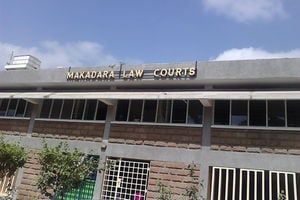What is my role as a male champion in SGBV fight?

Tony Mwebia is the founder of Men End FGM Foundation, an organisation that started off as an online campaign seven years ago, to fight FGM.
What you need to know:
- Community paralegals serve as crucial links between law and real-life issues, offering support directly to communities, especially in gender-related matters.
- They promote legal empowerment, providing tailored solutions to legal problems, and facilitating access to justice for marginalised individual.
- Collaboration within networks, active participation in judicial committees, and close coordination with legal professionals and counselors are essential for their effective impact.
Dear Vivian,
I am a male champion and community-based paralegal. What is my role in sexual and gender-based violence in my community?
Moses Onyiego,
Nyamira
Dear Moses,
Community paralegals provide a bridge between the law and real life. They are sometimes called legal empowerment advocates, grassroots legal advocates, barefoot lawyers, male champions or community mobilisers. There is now an emergence of male champions, such as yourself, who are supporting the communities in gender issues.
Your primary role is not to assist lawyers, but rather to work directly with the community you serve. Due to this role, seek continuous training in basic law and in skills like mediation, organising, education, and advocacy.
From this backdrop, some of the roles you can engage in include promoting empowerment by developing SGBV awareness and available legal protections to the communities. You can also provide tailored solutions to legal problems through creative strategies and utilising a range of skills and tools, such as in-depth knowledge of local context. For example, you can help in addressing cultural harmful practices such as early child marriages, succession matters and female genital mutilation.
As portrayed above, you play a crucial role in the community because in most instances, you are the first point of contact with SGBV victims. Research shows that most of the victims find the legal process cumbersome, leading to fatigue or non-reporting. This is because lawyers are few, with most being located in urban centres, while the law and its procedures are complicated. The victims, therefore, prefer having someone to walk with through the legal process.
It is crucial that you work within a network. I will recommend joining or forming a community of paralegals for effectiveness in ensuring access to justice is available to the indigent women. There are strategic places in the judicial system you can sit for example, the Court Users Committees (CUCs).
The Judicial Service Act institutionalises CUCs by providing for the establishment of the National Council on the Administration of Justice to ensure a coordinated, efficient, effective and consultative approach to the administration of justice and the transformation of the justice system.
Notably, the CUC is a platform that brings together actors and users in the justice sector to enhance public participation, stakeholder engagement, develop public understanding of court operations and promote effective justice sector partnerships for a coordinated, efficient, effective and consultative approach in the administration of justice. One of the performance indicators of the CUCs is the increased number of people who go to court to seek services. This is where you would come in by ensuring that all SGBV cases within your community are reported.
Finally, work closely with lawyers and counsellors to provide support to victims of SGBV. Remember you should not assist victims of SGBV to settle their cases out of court. In these cases, you are a bridge between the community and the formal justice institutions.
Vivian
The writer is an advocate of the High Court of Kenya and award-winning civil society lawyer ([email protected]).





